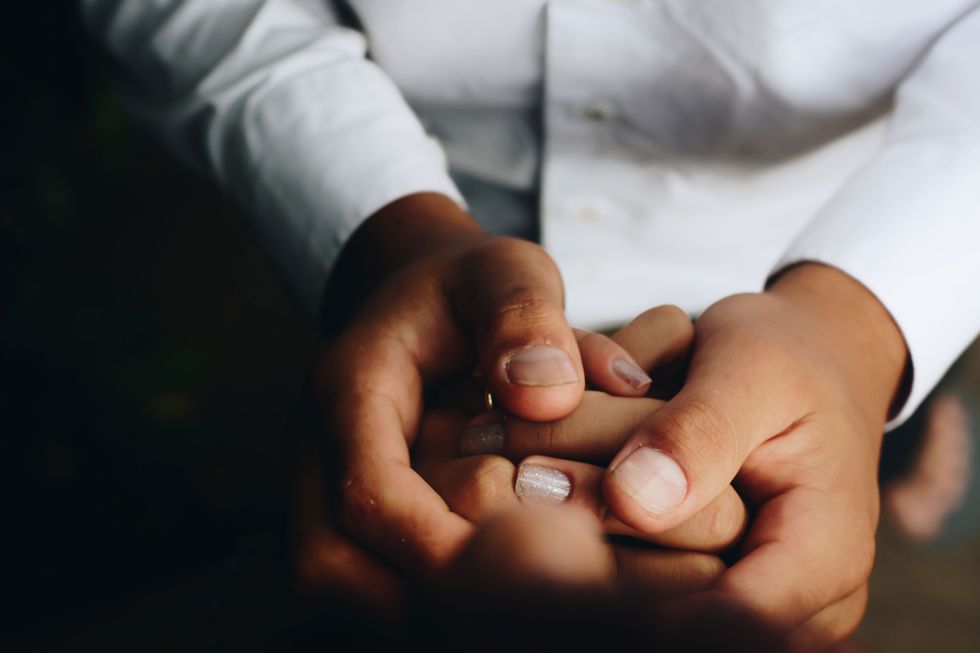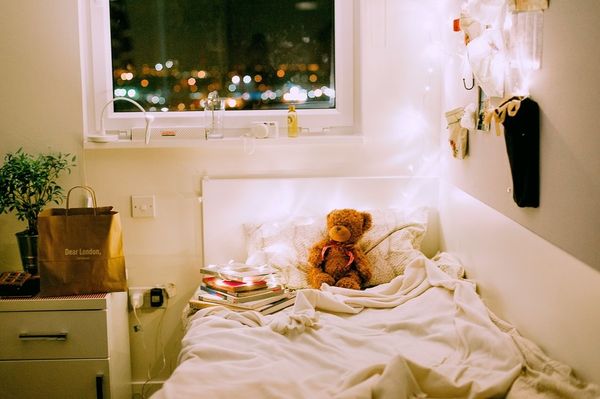For the longest time, I wanted to be a doctor.
Scratch that. For the longest time, my dad wanted me to be a doctor. He told me in first grade that I would become a doctor and my sister would become a lawyer, and we would become a powerhouse of the "elite," the best, with high household incomes and a comfortable life to provide for our own future kids. So, for the longest time, I believed him. I struggled internally with many different things. One of the biggest, however, was the looming doubt that the MD path was not the right one for me.
Perhaps it's a long-echoed sentiment of many second-generation Chinese kids. A lot of people will see Chinese Americans interested in becoming a lawyer, or a doctor, or—or nothing else, really. Maybe dentist. Kind of a step down. But also maybe surgeon instead. Kind of a step up. I'm not trying to rank vocations to say which one is "better," or not; in my personal opinion, I don't think there's a huge difference in rank between jobs like this. It's a choice between what kind of lifestyle, what kind of interests, what kind of daily work life an individual wants to pursue. In fact, in my opinion, you could become an artist—and if you're successful to any degree, that's no better or worse than becoming a successful doctor as well, no matter what the monetary pay is.
But in my parents' eyes, it isn't. In my parents' eyes, doctor or lawyer are the only occupations that have any chance at being both stable and high-paying, and as many Chinese Americans will know, Chinese immigrant parents, including my own, are constantly worried about money. Coupons, discounts, saving water, saving jars, saving anything and everything and scrimping on air conditioner in 110-degree weather despite being completely able to afford it—all of this is worth it to save just a little bit more money, on the off chance that there's a sudden, random emergency and loans won't have to be taken out.
So, doctor was me, and lawyer was my sister. I kept on trying to tell myself I was really interested; I told myself I enjoyed science, and I wanted to go to more than eight years of school after high school. I wanted to take out loans during school to support myself through medical school, and I wanted to save peoples' lives, and my life goal was about making money to support my own kids, and I was obviously destined for such a clearly spelled out duty. I wanted this.
In high school, I entered a program called Biomedical Sciences, or Biomed for short. Biomed was a four-year program that covered various aspects of the medical field, and it helped us gain an upper-hand in learning medical topics and performing dissections compared to other schools without this program. It looked good on transcripts, and it was honestly a pretty interesting program. I found a couple friends through it, and we bonded together over the constant projects that we needed to complete.
But in high school, I also started wondering what the hell was my purpose. I suddenly thought about the possibility of not wanting kids. My life felt weirdly empty. It felt as if I had been prepping myself all this time to follow my parents' examples and grow up, get a job, and then tell my kids everything I did wrong and instruct them not to do the same as me. To control their lives as my parents had tried with mine; to make them take classes, to bend their interests in a certain way, to make them better—I understood the purely good intentions behind everything my parents did and said toward me, but I also clashed with them again, and again, and again, as my teenage years and the concurrent angst and rebelliousness rose with my age.
During high school, I continued to struggle with this pre-ordained life purpose, though I did as I was supposed to and took all the AP classes I could, ultimately taking 11 AP classes and their corresponding tests by the end of high school. On average, my scores were a 4.0. AP tests are scored out of 5, so I did relatively well and earned a lot of credit that covered a lot of the classes I needed to take when I entered college.
When I entered college, however, the first month in, I broke my foot. It was my first time dealing with a serious injury and I had no idea how to without guidance from my parents always controlling how I managed myself. I then realized taking an entire calculus class in one semester was a lot more different than taking it over the course of a year. I nearly failed my vector calculus my first semester, and my second semester, I didn't do too well in my chemistry classes either. I went from a mostly-A student to a student who needed to take a supplementary class during summer to keep my scholarship.
I…didn't know how to live without my parents, as ridiculous as that sounds. My mom had controlled my lifestyle, up to barging into my room at night to scream at me to sleep if she saw the light on. I would always lie in the dark on my laptop, either browsing the internet or trying to finish some homework I'd procrastinated on, tense and on alert to slam my laptop shut, slip it under my pillow, and lay my head down to pretend I was asleep in case I heard the doorknob turn. Every time I heard the garage, I would run to my room and pretend I was doing my homework. Every time I was browsing for snacks in the pantry, I would be ready to throw the snack down or finish it in one gulp or simply pretend I was getting a glass of water if I got out of the pantry room fast enough when I heard her approach the kitchen. (For a while after leaving home, I'd get so tense whenever I heard a garage door whirring and automatically feel panicked—like, some mild PTSD, anyone?)
My point being, my parents had controlled both my lifestyle and my purpose until I entered the UA. From then, I had so much freedom. I clearly had no idea how to use that freedom initially, and freshman year was a mess. I almost felt afraid of it—but over time, I embraced it completely. During my second semester, my foot healed enough that I started going to the gym after being persuaded by new friends, and I lost most of the (nearly freshman 15!) pounds I'd gained during first semester. My life started becoming more structured, and I started taking charge of how to organize myself instead of waiting for my mom to over-organize everything for me. During my sophomore year, I started really thinking about and exploring what I wanted to do.
It still came back to becoming a doctor. I'd entered college starting with a Biochemistry major, tacking on a Molecular and Cellular Biology major, then dropping Biochemistry and adding a few minors. I'd initially told myself I'd set my mind on entering pharmacy instead of medicine, a measly attempt at trying to deviate from the path my parents had set me on, and I had made a four-year plan for taking all the pre-requisites for both pharmacy and medical school. I'd already invested quite a bit of time and effort into this, and I didn't want to waste it.
I realized that this time around, however, I did want to become a doctor. I do want to become a doctor. I realized that during my childhood years, my parents would sometimes say things like I'd take care of them and know how to cure their illnesses when I became a doctor. I remember my grandparents experiencing heart attacks, or a stroke, or going through various other health issues that no one in the family could understand or help with. I realize, now, that despite the resentment I had for the longest time on how I was raised, I appreciate what they did for me and all the resources and effort they put into raising me well. Science doesn't have to be a passion per say for me to be interested in it, and practicing medicine itself, helping patients, is far different from studying scientific subjects. I truly want to help patients now, help people like my grandparents, and help people get better and feel better. The path towards medical school is still very far, and I may ultimately not reach that goal, but I am far more determined and far more passionate about having the purpose to help, to positively impact other peoples' lives, that my drive to enter medical school is all on my own now.



















